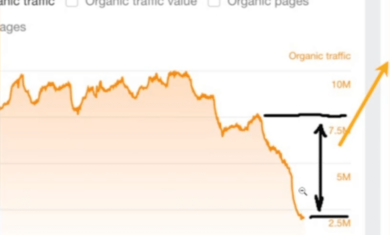I share a lot from Seth Godin on this blog and in emails to various people, but there is one of his posts that I share far more than others called “What is spam?“
He published it 10 years ago today, and I fear that things have gotten far worse over this last decade.
The entire post is amazing, and quite short, so I encourage you to give it a read. For me, the first two paragraphs are the ones that I promote the most.
First, he defines spam:
Spam is commercial, unsolicited, unanticipated, irrelevant messaging, sent in bulk. It’s the email you didn’t ask to get, the junk in the comments that’s selfish and trying to sell something, the robocall on your cell phone from a company pretending to be Google Maps.
Next, he explains why it’s such a problem:
Some spammers will tell you that all you need to do is opt out. But of course, the very problem with spam is that it requires action on the part of the recipient, action that can’t possibly scale (how many times a day should we have to opt out, communicating with businesses we never asked to hear from in the first place?) People are smart enough to see that once spam becomes professionally and socially acceptable, all open systems fall apart.
It’s the first sentence of that second paragraph that tells the story: “all you need to do is opt out”. Here are a few of those “all you need to do” messages at the bottom of spam emails that I received yesterday:
- “Should you wish to be removed from these emails giving you current ocean costs, just let me know and I will be happy to remove you moving forward”
- “If there is no longer an interest please let me know.”
- “If you reply ‘Not Interested’, we will remove you from our lists.”
- “If no interest, let us know so we don’t follow up further.”
I’d say roughly 1/3 include a message like that, 1/3 include a normal “unsubscribe” link (which may or may not work), and the other 1/3 just send the message with no instructions on how to opt out. In all cases, I just mark as spam and move on.
Of course, this is just email that we’re talking about but the problem is growing when it comes to text messages, phone calls, LinkedIn messages, and other forms of communication as well. Unsolicited messages in any of those areas is never acceptable.
The growing problem is not just the “evil spammers” of the world (though they’re problematic as well), but otherwise mostly legit marketing companies that think this kind of behavior is acceptable. It’s not.
I’ll end with the same statement that Seth put at the bottom of his post 10 years ago:
Trust, as we know, is the essence of connection and transaction, and spam is the radioactive antitrust device.




